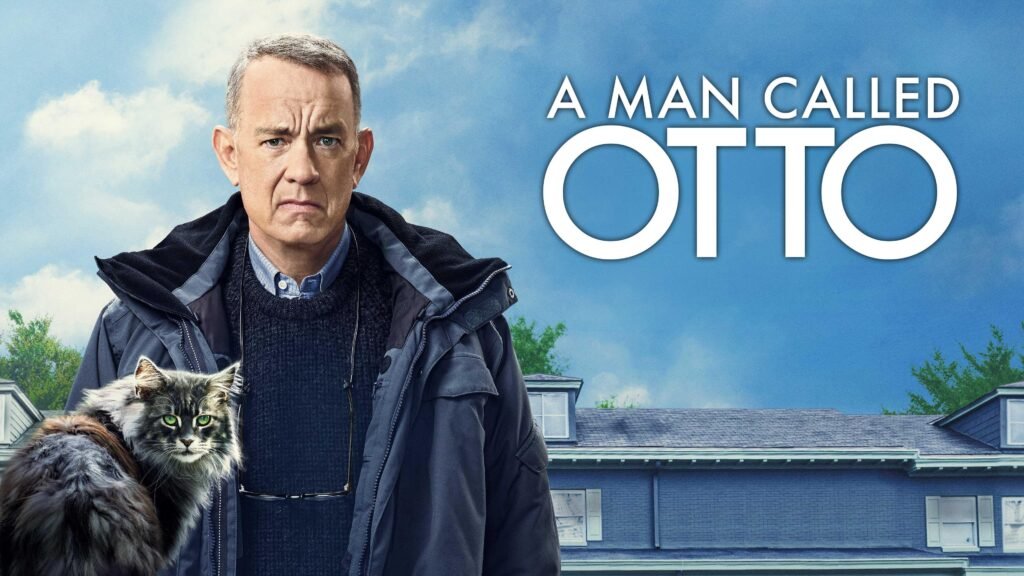
A Man Called Otto
In Marc Forster’s amiable yet unspectacular dramedy “A Man Called Otto,” the protagonist, Otto, cannot choose his battles for the life of him. He lives in a nondescript suburban neighborhood somewhere in the Midwest filled with identical row houses, and he is easily irked by minor slip-ups of a stranger. So much so are his objections that they could give an average episode of “Curb Your Enthusiasm” a run for Larry David’s money.
Portrayed by national treasure Tom Hanks in a mannered performance that splits the difference between quirky and grounded, Otto is often right about his gripes to his credit. For example: Why should he pay for six feet of rope and waste a few extra cents when he purchased just over five? Why shouldn’t he call out thoughtless drivers who frequently block garage doors or entitled neighbors who can’t be bothered to close a gate and abide by basic rules of trash disposal? Or raise hell when soulless real estate guys from the fictional and amusingly named “Dye & Merica” show up to disrupt the peace of the community?
Then again, not everything is as bad as Otto makes them seem. And maybe he could stand to have some manners himself especially when a new neighbor who is very pregnant drops by with a bowl of home cooked meal as a courtesy.
If you’ve already seen Hannes Holm’s 2015 Swedish hit “A Man Called Ove,” which earned an Oscar nomination for best foreign language film no better or worse than this middle of the road American remake (yes, not all original films are automatically superior) then you know that Otto hasn’t always been this insufferable. In syrupy doses of visually overworked flashbacks, Forster and nimble screenwriter David Magee show us that even from his younger years, he was socially awkward but at least nice and approachable.
Young Otto (played by the star’s own son, Truman Hanks), with a flatly unstylish side-part haircut that aptly emits a “nice but otherworldly guy” vibe, had a curiosity about engineering about how things work. His life apparently changed when he happened upon the dreamy Sonya (Rachel Keller), who eventually became his wife and recently died.
As in “Ove,” Otto can’t wait to join his wife on the other side, but his many suicide attempts are interrupted in sequences that sometimes are awkward funny, and at other times just plain awkward. The chief interrupters of this get off my lawn guy are the aforementioned new neighbors: Marisol (bubbly scene stealer Mariana Treviño, far and away the best thing about this movie) and Tommy (Manuel Garcia-Rulfo), a happily married with kids couple who often ask little favors of their grumpy neighbor.
There are also others in the neighborhood, such as kind transgender teen Malcolm (Mack Bayda), kicked out of his house by his dad; fitness-obsessed Jimmy (Cameron Britton); Otto’s old friend Rueben (Peter Lawson Jones) and wife Anita (Juanita Jennings), who no longer speak with Otto; not to mention a stray cat that nobody seems to know what to do with for a while.
The mystery is nobody in this story knows what Otto’s about until well into the second act of the picture. Instead, they all collectively treat him with patience and acceptance as if he wasn’t being deliberately rude to them every chance he gets. For instance, why do his work friends even bother throwing him a retirement party which will surely go unappreciated, or why does Marisol keep trying to bring out the good side of him when every one of her genuine attempts is met with an offensive shutdown from Otto?
Still the story has its moments when Otto finally lets down his guard and starts making all the usual reparations while suffering from some rare heart condition on the side. At first becoming a local hero after accidentally saving someone’s life in front of a bunch of people too busy on their phones to help, then later gaining further favor by taking Malcolm in and slowly but surely befriending Marisol it’s these small wins that make an otherwise predictable tale worth telling.
But where Forster’s adaptation really shines is its positive message about little triumphs won by everyday folk acting as one against faceless corporations. “A Man Called Otto” may not be quite as philosophical as “About Schmidt” nor as socially conscious like “I, Daniel Blake” both films which occasionally touch upon similar themes but it’s still a wholesome crowd-pleaser for your next family gathering.
Watch A Man Called Otto For Free On Gomovies.
.jpg?w=1024&resize=1024,1024&ssl=1)
.jpg?w=1024&resize=1024,1024&ssl=1)
.jpg?w=1024&resize=1024,1024&ssl=1)
.jpg?w=1024&resize=1024,1024&ssl=1)
.webp?w=1024&resize=1024,1024&ssl=1)
.jpg?w=1024&resize=1024,1024&ssl=1)
.jpg?w=1024&resize=1024,1024&ssl=1)
.jpg?w=1024&resize=1024,1024&ssl=1)